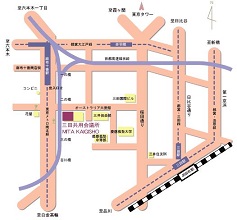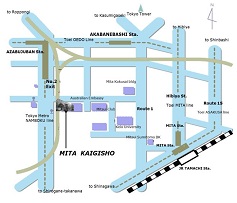セミナーは終了いたしました。たくさんの聴講者にご参加いただきありがとうございました。
日 時 :平成30年2月1日(木)
10:00~16:00(開場 9:30)
会 場 : 三田共用会議所
定 員 : 250名(事前申し込み<先着順>)
参加費 : 無料
概要(PDF)のダウンロードはこちら。
なお、当日の動画は後日厚労省動画サイトにて、字幕つきで公開いたします。
わが国の平均寿命は20世紀後半に著しい伸長を遂げ、2015年には男性80.75年、女性86.98年(日本版死亡データベース、以下同様)と、現在、国際的に見てもトップクラスの水準を誇っている。そして、「日本の将来推計人口(平成29年推計)」によれば、平均寿命は2065年には男性84.95年、女性91.35年(死亡中位仮定)に達すると推計され、特に女性についてはこの死亡状況の下で生まれた子どもの2割近くもが100歳まで到達すると見込まれる。一方、フランスも長寿国として知られており、2014年における平均寿命は男性79.26年、女性85.40年(Human Mortality Database、以下同様)となっている。
このような世界有数の二大長寿国である日本とフランスであるが、その長寿化の過程には共通点とともに相違点も存在する。例えば、第二次大戦直後、わが国の平均寿命は先進諸国の中でも最も低い地位にあり、1950年の平均寿命は男性で57.68年、女性で60.99年に過ぎなかった。しかしながら、フランスは同年に既に男性で63.43年、女性で69.19年に到達していたのであり、戦後における両国の死亡改善過程は異なるものであったといえよう。 一方、このような長寿化は社会・経済に対して様々な形でインパクトをもたらす。特に、近年の高齢死亡率改善によって長期化した老後の生存の質を向上させることは重要な課題となろう。高齢期における健康状態の悪化は医療コストの増大や介護ケアの必要性など、社会保障制度の問題を深刻化させる。このため、予防による健康への投資等を通じた健康寿命の延伸なども必要となる。
両国は長寿化に関して共通項を有する一方、死亡以外の人口変動要因である出生と移動については対極をなす。わが国が先進諸国の中でも極めて低い出生水準にあるのに対し、フランスは人口置換水準に近い出生水準を誇っている。また、日本はこれまで外国人受入れに関しては積極的な政策を採ってこなかったのに対し、フランスは多くの移民を受け入れてきた国家である。このような人口動態の違いは、両国の長寿化に対する対応に異なる影響をもたらしている可能性も考えられる。
本国際シンポジウムでは、この二大長寿国の長寿化に焦点をあて、他国を凌駕する長寿化の達成とその生存の質、医療・介護等社会保障への影響、そして長寿化への対応について比較し、さらなる進展が期待される両国の今後の長寿化の行方を総合的に展望する。
International Symposium on Longevity
- Through Comparison between France and Japan, the Two Top Runners of Longevity-
Joint Seminar with INED (French Institute for Demographic Studies)
Date: 1 February 2018 (Thu), 10:00-16:00 (Open:9:30)
Venue: Mita Kaigisho (Tokyo, Japan)
Capacity: 250 persons
Fee: Free (Registration is needed)
Scope of the Seminar
Japanese life expectancy has increased remarkably in the second half of the 20th century and reached 80.75 for males and 86.98 for females (Japanese Mortality Database), which exhibits that Japan is one of the longest lifespan countries in the world. Moreover, the life expectancy is projected to reach 84.95 for males and 91.35 for females in 2065 by the 2017 official population projection (medium variant) by IPSS. Around 20% of the baby girl born in this mortality situation would be considered to survive to 100 years old. France is also known as the longest lifespan country and its life expectancy is 79.62 for males and 85.40 for female in 2014 (Human Mortality Database).
The processes of the lifespan extension for the two countries have common factors as well as different ones. For example, Japanese life expectancy was at the lowest level among the developed countries just after the World War II, and 57.58 for males and 60.99 for females in 1950. However, life expectancy for France already exhibits 63.43 for males and 69.19 for females in the same year, which shows different characteristics of the two countries.
These lifespan expansion would affect society and economy in many ways. In particular, it has become more important to enhance the quality of life in the old ages when old age mortality improvement has made the lifespan longer. Deterioration of health status in older age gives unfavorable impacts on the social security system such as increase of medical costs and need for long term care. Therefore, prolongation of healthy life expectancy is required through the health investment by prevention of diseases.
Although the two countries share common characteristics about longevity, they have opposite directions about fertility and migration. Japanese fertility level is the lowest level among developed countries, whereas French fertility rate is around the replacement level. Incorporation policy of foreign workers have not been positive in Japan, whereas France has admitted many immigrants. These difference about demographic change might have different impacts on the actions to longevity.
This international symposium will focus on the longevity of the two countries, comparing the factors of achievement of longer life expectancy that surpass other countries, the effects on social security such as medical and long term care, and the actions to the longevity. We will also prospect the future of the longevity of the two countries that is expected further progress.
 このページの先頭へもどる / Top of the page
このページの先頭へもどる / Top of the page

